Topic Review: Sleep – Part 2
Have a question about science, health, fitness, or diet? Get cited, evidence-based insights: Consensus is an AI-Powered Academic Search Engine.
Try for freeContents
INTRODUCTION
Roger Federer is arguably the greatest male tennis player of all time. On the tennis court, he is the ultimate professional, combining talent and tenacity. Off the court, there is something he is just as tenacious about: getting sleep. Sleep allows our bodies to recover, boost energy levels and optimizes mental performance. So during big tournaments like Wimbledon, Federer stays in a separate house to his family to make sure he has the optimal environment to get quality sleep.
Real Madrid, one of the world’s most successful football clubs, has built 81 personalized ‘sleep pods’ at its training facility in Spain. Optimized for temperature, lighting, air quality, duvet-type and mattresses, their investment in ‘sleep environment’ ensures their multi-million dollar player roster can perform at peak levels. Despite this, even elite athletes will go through periods of poor sleep that personalized pods simply can’t fix. For the rest of us, we have to tap into the latest science.
All of us will experience problems falling or staying asleep sometime in our life. A recent study found that more than one-third of working Americans aren’t getting enough sleep, and it has been on the rise since 2010. So what can we do to get better sleep? Babies and stress are common triggers to poor sleep. But what if it lasts months or years? Is there something we can do about it? What about sleeping pills, diet, technology or having a night-cap? Do they help?
In Part I of our Sleep Review we learnt about the science behind our sleep habits and how sleep impacts our mental health and even the onset of diseases like dementia, diabetes & heart disease. In Part II of our Sleep Review, we asked Metafact experts to share the facts, myths and hacks to help you get a better sleep. So let’s dive in with the world’s top sleep researchers to learn how to get better zzz’s.
Learn more with Consensus:
NUMBERS
Meta-Index
60,000,000 Estimated number of American adults who have a sleep disorder
38% People who unintentionally fall asleep during the day at least once in the preceding month
4% People who fall asleep while driving at least once in the preceding month
72,000 Car accidents in the United States caused by a drowsy driver during 2013
800 Annual fatalities in the US from car accidents caused by drowsy driver
21% Proportion of fatal car crashes caused by a drowsy driver
25,000,000 American adults have obstructive sleep apnea, intermittent airflow blockage during sleep.
51 Number of unique sleep apps available in the Apple IOS store and Google Play store
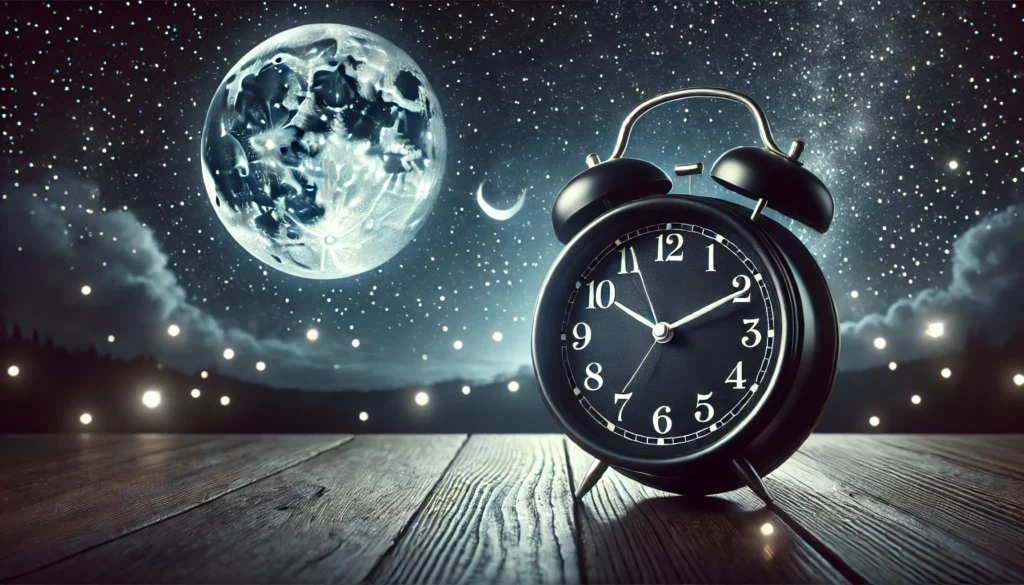
EXPERT TIPS
How do I work out how much sleep I need?
Most adults need 7-8 hours of sleep, but individually this varies alot. Some people can function on 5hours while others need 10hours. The key message is to get enough sleep to fulfill your health needs. Your ability to remain alert and functional the entire day especially after meals is a good indicator of the hours of sleep you need. So how can we work out our optimal sleep duration?
Dr Vivien Abad, a sleep expert from Stanford University shares a simple method that you can do at home:
Simple test to find out optimal sleep times: If you are sleepy, maintain your wake-up time constant and go to bed earlier by 15 minutes for a week and reassess your daytime function. Keep moving your bedtime back in 15-minute increments weekly and maintaining the same wake-up time until you are alert the entire day. That should be your usual bedtime and wake-up time.
What is the optimal sleep environment?
A quiet, dark, and cool environment is the best to help sleep. Dr Raphael Vallat, sleep expert from University of California Berkeley writes : “To achieve such an environment, lower the volume of outside noise with earplugs or a “white noise” appliance. Use heavy curtains, blackout shades, or an eye mask to block light, a powerful cue that tells the brain that it’s time to wake up. Keep the temperature comfortably cool—between 60°F (15°C) and 75°F (23°C)—and the room well ventilated. And make sure your bedroom is equipped with a comfortable mattress and pillows”
Learn more with Consensus:
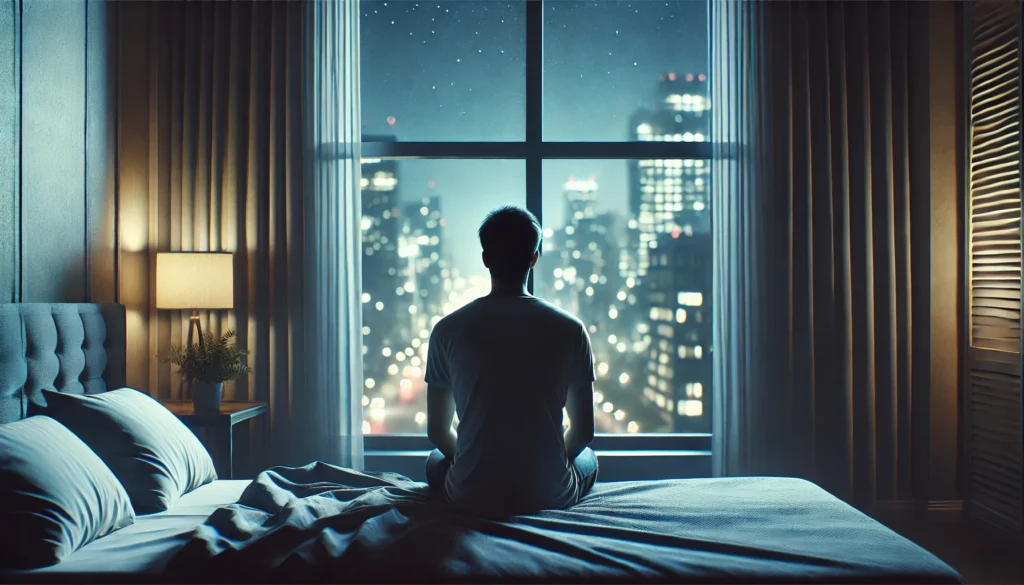
KEY QUESTION
Do I have insomnia?
Problems in falling or staying asleep is known as insomnia. Sometimes it’s environmental, like parents with newborn babies or a stressful deadline at work. Up to 30% of adults have insomnia symptoms at any one time writes Pedro Viana, clinical neurologist from King’s College London.
There are three different types of insomnia. Sleep-onset insomnia is when you find it difficult to fall asleep, while sleep-maintenance insomnia is when you find it difficult to stay asleep, and in particular, waking too early and struggling to get back to sleep.
Acute insomnia is where sleep is disturbed because of short-term factors such as travel, stress or illness. “That usually resolves once the short-term factors have been addressed or settle” writes Dr David Cunnington from the Melbourne Sleep Disorders Centre. But insomnia can last much longer.
If insomnia symptoms occur for more than 3 nights per week and have lasted at least 3 months with significant impairment during the day (mood, tiredness, poor attention), then it could be chronic insomnia.
Dr Robert Glidewell from the Insomnia Clinic writes about results from a study that tracked 388 patients with insomnia symptoms. 74% reported Insomnia symptoms for over 1-year and 46% reported lasting 3-years. About 6-10% of the world’s population suffers from chronic insomnia, according to Dr Viana.
Given these numbers it’s important that you “Don’t label yourself as an insomniac” writes Dr Quentin Regestein, MD a sleep expert from Harvard Medical School. “Should you have a difficult night, the experience will only reinforce the label and create a fear of insomnia, which could become a self-fulfilling prophecy. Most people have a bad night now and then” he notes.
“If you have experienced an episode of insomnia in the past and you experience symptoms of insomnia during a night: Do not overreact!” writes Dr Mel Schneider, sleep expert from Goldsmiths, University of London. “We all have bad nights of sleep, that does not necessarily mean a new episode of insomnia is starting”.
Learn more with Consensus:

THE CONSENSUS
Is Insomnia Permanent?
Read the full answers to this question here. A very strong consensus of sleep experts agree that insomnia is not permanent. Insomnia is often situational writes Dr Michael Bonnet from Wright State University School of Medicine. Poor sleep can stem from any number of external factors like “acute stress, incorrect sleep timing (circadian factors), use of caffeine or alcohol, or over-optimistic expectations”. On the other hand insomnia can be one of the symptoms associated with long-term or chronic illnesses like depression and chronic pain.
Insomnia symptoms also come naturally with age. “There are normal changes in sleep as we age. It is common for older people to have multiple awakenings during the night and to have at least occasional difficulty returning to sleep later in the sleep period. These symptoms, which might be considered as insomnia by a young adult, are fairly common in many older adults. This means that if one uses young adult criteria, insomnia may be “permanent” in the elderly.”
Those with chronic insomnia typically are likely to have much greater physiological arousal, higher metabolic rates and elevated blood pressure / heart rates. “One approach to treatment is to try to reduce this arousal by relaxation training.” notes Dr Bonnet. Another approach is to use cardio training to improve natural relaxation response and reduce resting heart rate. One approach that seems to work very well is called ‘Cognitive Behavior Therapy’ – which investigate next.
Other experts note “there are still many idiosyncratic, long term cases of insomnia that do not readily respond to any form of intervention” writes Dr Gregory Willis from the Bronowski Institute of Behavioural Neuroscience.
Learn more with Consensus:
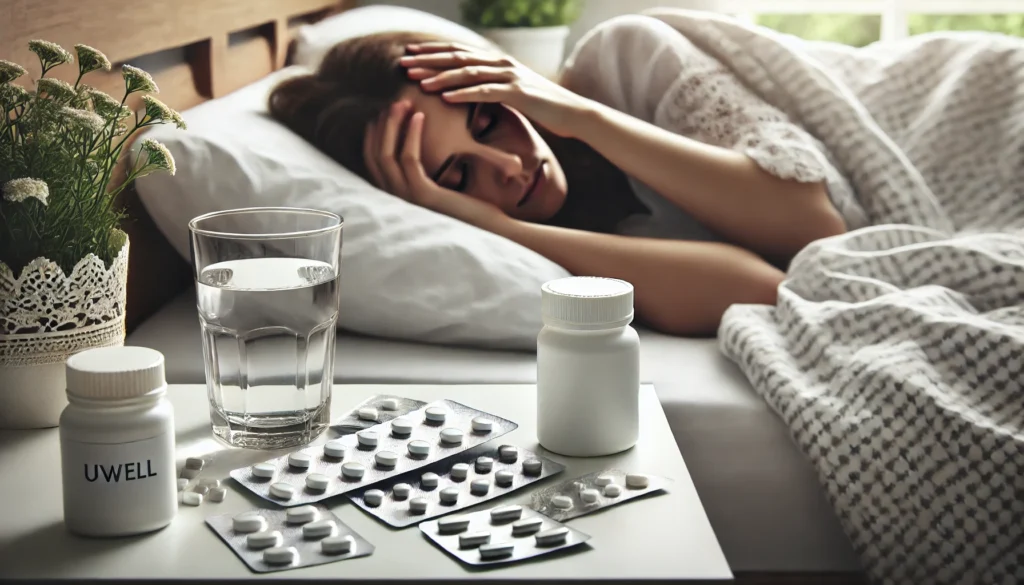
KEY QUESTION
Do sleeping pills help insomnia?
“Benzodiazepine-receptor agonists have been found effective in enhancing sleep in the short run” writes Dr Anneleen Malfliet. Benzodiazepine receptor agonists (BZRAs) include sleeping aids like Ambien and Temazepam. “Yet, given the limited evidence for their long-term effectiveness, as well as their known side-effects, their usefulness remains questionable” she writes.
“There is growing concern in the scientific literature that most prescription sleep aids may be associated with increased risk of falls and dementia in older adults. Accordingly, prescribers are becoming increasingly apprehensive about using them” writes Professor Robert Glidewell from the Insomnia Clinic.
Indeed the American Family Physician recently wrote an article about the use of these prescriptions for insomnia. “Although BZRAs are beneficial for short-term improvement in sleep onset latency and duration they also have associated harms, including problems with dependence. Evidence suggests that the benefits of BZRAs for insomnia wane after four weeks, whereas harms can continue, especially for older persons, including a greater risk of falls, motor vehicle collisions, problems with memory, and daytime sedation”.
Meanwhile “Over-the-counter sleeping pills produce more drowsiness than sleep” writes Dr Quentin Regestein, MD a sleep expert from Harvard Medical School.
Learn more with Consensus:

THE CONSENSUS
Does cognitive behavior therapy work for insomnia?
100% Affirmative from >10 experts
Read the full answers to this question here. With up to 10% of the world’s population suffering from chronic insomnia, are there effective evidence-based treatments available. Sleep experts were unanimous that ‘Cognitive Behavior Therapy’ is the most effective to treat insomnia.
What is Cognitive behaviour therapy (CBT)
Cognitive behaviour therapy (CBT) is a type of psycho-social intervention by trained psychologists. It may help you to change unhelpful or unhealthy ways of thinking, feeling and behaving relating to sleep. CBT uses practical self-help strategies designed to improve your quality of sleep. For a more detailed explanation, read this explainer by Professor Peter McEvoy from Curtin University via The Conversation.
“There is a form of CBT called CBTi that is a set of behavioural and cognitive strategies specifically used for the treatment of insomnia. Studies support that CBTi is superior to medication for the long term treatment of insomnia” writes Dr Meena Khan MD, a sleep expert from Ohio State University. “CBT-I is designed for individuals with insomnia and is successful in about 70-80% of cases” writes Professor Jason Ellis, director of the Northumbria Centre for Sleep Research. “By success we generally say that they no longer meet criteria for having insomnia on completion of treatment” he wrote.
“CBT-I helps to establish new connections so that the person more easily falls asleep and stays asleep” writes Dr Hilary DeShong from Mississippi State University. But not everyone benefits from CBT-I. Sleep researchers are still working out why, but “but we know that if you have had it [Insomnia] since childhood you are unlikely to get as much benefit [from CBT-I]” writes Professor Ellis. Despite this “most people will respond (get a significant reduction in symptoms) to CBT” writes Dr David Cunnington from the Melbourne Sleep Disorders Centre “so it’s important that people presenting with chronic insomnia receive CBT treatment”.
Despite encouraging results in the short-term, the long-term effects seem less clear according to CBT expert Dr Anneleen Malfliet from Amsterdam. “studies looking at effects of CBTi at long-term (1 to 12 months following therapy) are currently lacking. The limited evidence available at the moment shows mixed results regarding its effectiveness. Therefore, we can conclude that insomnia can disappear due to treatment, but results at long-term remain uncertain, leaving us unable to fully answer the question if insomnia is permanent or not.” she writes.
Learn more with Consensus:
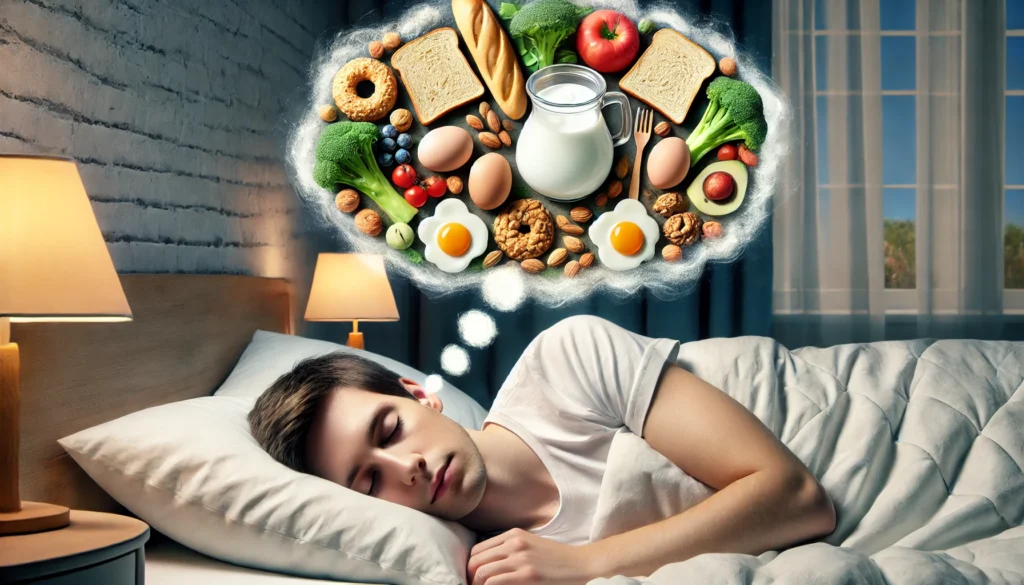
THE CONSENSUS
Can diet impact sleep?
71% Affirmative from 7 Experts
Read the full answers to this question here. “Unequivocally Yes” writes Dr Gary Wittert from the University of Adelaide. “Eating a diet that is high in processed foods particularly when combined with fat, and limited in vegetables, salad items, whole grain and fruit is associated with poorer quality sleep and greater daytime sleepiness the following day”. What about late night meals? “eating late at night and very large meals close to bedtime also disrupt sleep” he writes.
Other sleep researchers are more skeptical about evidence suggesting diet can impact sleep. “A healthy diet may help preventing risk factors for a worsened sleep quality (i.e. obesity), however the evidence that a specific diet can impact sleep are scarce.” writes Ludovico Messineo, from Flinders University. “High carbohydrate and high fatty acid intakes might have a slight effect on REM (Rapid Active Movement, the sleep stage where we dream) and slow-wave sleep (the deepest stage): however, results are conflicting and not consistent between the sleep stages.”
Experts did mention that sleep cycles might be impacted by the intake of tryptophan ( an amino acid precursor to the neurotransmitter serotonin, and the hormone melatonin). Tryptophan is present in dairy and meat. Magnesium and B vitamins (involved in the secretory pattern of melatonin), might also have a role in avoiding sleep disruption – found in fruits, nuts, legumes and meat.
Learn more with Consensus:

THE CONSENSUS
Does alcohol help sleep?
Read the full answers to this question here. Alcohol has a hyponotic effect and we seem to become sleepy after a drink. However all experts were unanimous that alcohol is not beneficial for sleep.
“It is a common myth that alcohol helps people sleep” writes Professor Danielle Dick from Virginia Commonwealth University. “Alcohol has sedative properties so it can help people fall asleep, but importantly, the quality of sleep is very adversely affected. Alcohol causes people to wake in the middle of the night and keeps people from entering into REM sleep, which is necessary to get a good night of sleep. Accordingly, even though alcohol may help you fall asleep, you’ll actually get a worse night of sleep overall and be more tired the next day” she writes.
Other experts confirm this. “Alcohol gives the false impression that it helps sleep” writes Dr Abhijit Nadkarni from the London School of Hygiene and Tropical Medicine. “What it actually does is to disrupt your Rapid Eye Movement (REM) phase of sleep. REM sleep is the restorative phase of sleep during which we also dream. Disruptions to this phase of sleep leads to poor quality sleep and may cause daytime drowsiness, poor concentration, etc. Thus alcohol is not a useful sleep-aid. Any benefits due to rapid initiation of sleep are offset by the overall poor quality of sleep” he writes.
It’s important to note less alcohol is much better. “There is a dose – response relationship: consuming one glass of red wine close to bedtime is less harmful for sleep than consuming 5 margaritas” writes Dr Christine Spadola from Florida Atlantic University.
Learn more with Consensus:
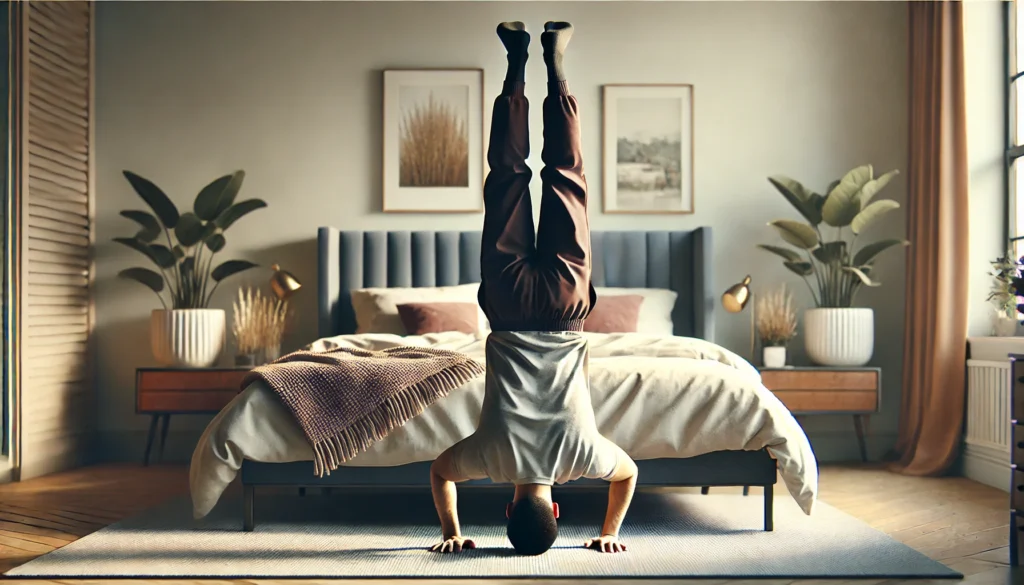
THE CONSENSUS
Does exercise help sleep?
100% Affirmative from 4 Experts
Read the full answers to this question here. Based on available evidence, “exercise could improve both sleep quality and sleep duration in various groups of the population including healthy individuals and patients with chronic diseases.” writes Dr Christoforos Giannaki from the University of Nicosia. “Regular aerobic exercise training seems to be the most effective form of exercise in terms of sleep improvement, whilst Yoga and resistance exercise have been shown to improve sleep quality as well.”
What about going for late-night runs or workout? “Exercising intensely too close to bedtime may adversely affect sleep for some people, however this generally varies from person to person” says Dr Giannaki. There is still some uncertainty on in the reported effects of exercise and sleep “it is noteworthy to mention that some studies did not report any changes on sleep related parameters whilst other studies report improvements” he writes.
Learn more with Consensus:

KEY QUESTION
Does caffeine impact sleep?
Read the full answers to this question here. Caffeine is consumed by 80% of U.S. adults via foods, beverages, and gums. Our experts suggest positive effects for those who are sleep-deprived and needing a quick boost in alertness, attention and reaction time. “Caffeine can eliminate some of the alertness deficits caused by sleep inertia, which is this unpleasant feeling of grogginess, reduced ability, and incomplete awakening that you have in the first minutes after awakening” writes Dr Raphael Vallat, sleep expert from UC Berkeley. “As such, it may be useful in situations and occupations where someone needs to be quickly alert and functioning upon awakening (e.g. medical residency, truck drivers, military…)”.
But aside from giving sleep-deprived people a short-term boost, does caffeine impact sleep quality? Experts suggest there is no single answer since it depends on timing, dose, your baseline level of sleepiness, habitual consumption, and individual caffeine sensitivity. “Some people are just more sensitive to the effects of caffeine than others” writes Dr Caldwell, sleep performance expert. However studies have shown that caffeine intake, as low as 100 mg*, does indeed delay the timing of the body circadian clock, reduce sleep efficiency and sleep duration and perhaps even more dramatic, decrease the electrical “depth” of sleep writes Dr Vallat.
When should I cease caffeine intake? Avoid caffeine at least 6hours before going to bed says Dr Caldwell based on this study. “If caffeine, particularly more than 100 mg, is taken within 6 hours of bedtime, it will likely degrade both the quantity and quality of sleep, especially in people who normally consume very little caffeine”.
*100mg of caffeine is equivalent to ~2-3 cups of black tea or ~1-2 coffee espresso shots or ~2 cans of Diet Coke.
Learn more with Consensus:
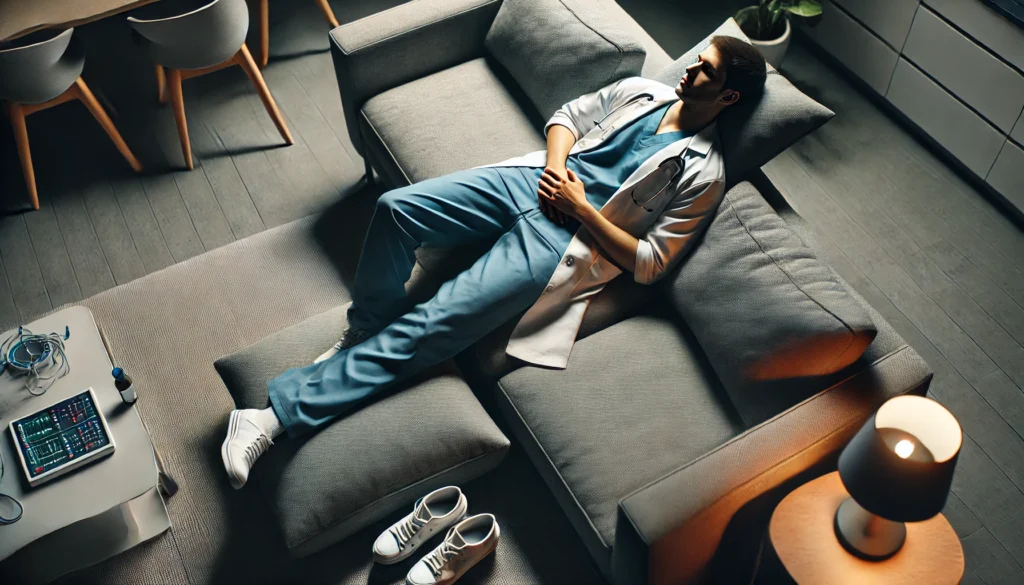
TOP ANSWER
Ways to improve your sleep?
Quentin Regestein : A sleep expert from Harvard Medical School writes a detailed essay on ways for you to try and get better sleep.
Here’s a summary.
Get up at the same time, even if you stayed up late
Your body must know how long a day is. It estimates day length by the interval between when you open your eyes and arise from bed in the morning on successive days. This interval should always be 24 hours long. You need to arise from bed every day at the same clock time to keep your body on track with the daily light/dark cycle and tuned to how the world goes around.
If you get to bed very late, take an afternoon nap. Do not oversleep; oversleeping does little good; it may make you a less alert or lower your mood. The human body rhythm has a built-in respite time in mid-afternoon. After a late bedtime, better to get up at your regular arising time and then take a nap in the afternoon so you won’t disrupt your sleep/wake rhythm.
Arising at the same time each day helps your internal clock order your internal economy. It controls the menstrual cycle by getting hormones secreted in the right order. It increases biochemical reagents at appropriate times and then elicits enzymes to process them.
Maintain bedtime rituals and a regular sleep cycle
Develop bedtime rituals. These will remind you that is time for sleep. You might lock your doors, close your windows, brush your teeth, change into your sleepwear, turn off the lights, etc. Explore whether reading in bed helps to hasten sleep at night.
No matter how poor the night sleep, arise from bed at your regular time, using an alarm if you need to. It is better not to watch the clock during the night. A regular sleep-wake pattern might make an alarm clock unnecessary.
Try to relax if you wake up in middle of the night
Should you awaken at night, remain in bed to let yourself fall back to sleep. You might do “mindful meditation,” where you think of a “mantra,” for instance the word, “one,” silently repeating it to yourself with each breath you take. A very slow, deep breath in to the count of seven followed by slow breath out to the count of four helps to undo stress. Otherwise, you might do muscle relaxation exercises, systematically focusing attention on each body part, e.g., left calf, right calf, left thigh, right thigh, etc., until you have relaxed your musculature. Should you still feel yourself becoming tense and frustrated, you might read for a while or engage in a quiet hobby before returning to bed.
Avoid screens, heavy eating 1-2hours before bed
Avoid looking at backlit screens during the evening (Computers, TVs, Phones and iPads); they signal the body that it is daytime. Better to read a book. Avoid eating heavy meals close to bedtime. Lying down after heavy meal invites stomach acid to flow into your lower oesophagus, which can elicit a sitting-up reflex.
Other methods to test
A very hot bath, as hot as you can stand it, before bedtime may ease sleep onset. For some people the bath should be 1 to 2 hours before bedtime.
Worry time: If worrying keeps you awake, schedule a 30 minute “worry time” each day. A good time for this is after the evening meal, not too close to bedtime. If you toss and turn in bed or wake up trying to solve your problems in the middle of the night, remind yourself that you will have time during the next day’s worry time. Remember you’re not likely to solve problems when you’re half asleep.
Explore regular naps: it is okay to take them if they help you sleep at night. Don’t take them If they disrupt your night sleep. Instead do some mindless tasks. You will likely become alert after a while, since our alertness waxes and wanes in a 90-minute cycle.
Malted-milk before bed: Try a glass of warm malted milk. Milk has an amino acid, tryptophan, that helps induce sleep – but needs some carbohydrates to work effectively. It also might be psychological.
Learn more with Consensus:
TAKEAWAYS
- Find out your own bodies natural sleep cycle (see method above). Then stick to it by maintaining bedtime rituals and a regular sleep cycle
- A quiet, dark, and cool environment is the best to help sleep
- Avoid screens and heavy eating 1-2 hours before bed
- Alcohol doesn’t help sleep quality and avoid caffeine at least 6hours before bedtime. For some, caffeine-free might be best
- Exercise and maintain healthy weight
- If you are experiencing poor sleep more than 3 nights a week for months, see a healthcare professional. There’s good options to help
Have a question about science, health, fitness, or diet? Get cited, evidence-based insights: Consensus is an AI-Powered Academic Search Engine.
Try for free